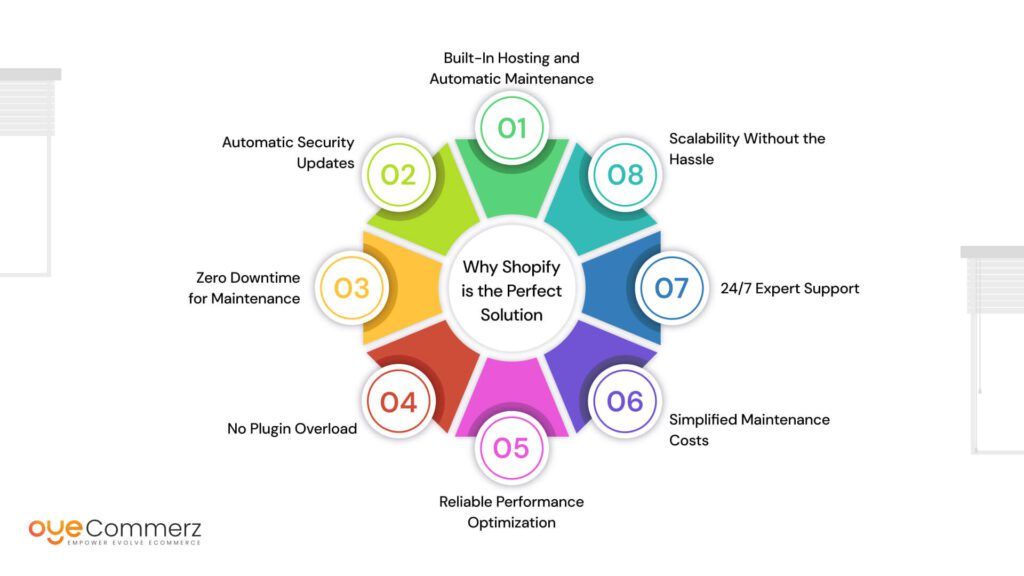In the constantly changing landscape of digital commerce, selecting the optimal system is vital for your company’s prosperity. If you’re at the moment using WordPress and planning a migration to an alternative, you’re not the only one. Numerous businesses are shifting to leverage Shopify’s comprehensive capabilities, user-friendliness, and expandability. This guide will guide you on the process of migrating from WordPress to this platform seamlessly, making sure that you achieve your online retail potential.
Why Switch from WP to this platform?
Before diving into the migration journey, it’s crucial to understand why this shift can be helpful for your digital storefront:
User-Friendly Interface: Shopify provides an intuitive dashboard that simplifies store handling, enabling for non-technical users.
Scalability: As your company develops, Shopify can handle higher traffic and sales without compromising performance.
Built-in Tools: Shopify comes with built-in features for SEO, analytics, payment handling, and more, minimizing the need for multiple plugins.
Enhanced Security: With Shopify, you benefit from strong security protocols that protect sensitive customer information.
Steps for a Smooth Migration
Migrating your digital shop from WordPress to Shopify includes key phases.
Here’s how to achieve a smooth transition:
Plan Your Migration Approach
Kick-off by outlining your migration blueprint. Pinpoint which elements of your existing site you want to transfer, such as:
Item details
Customer information
Purchase logs
Posts
Pick the Right Migration Package
Considering your requirements, select a migration plan that fits your eCommerce goals. Migration experts offers various options:
Basic Migration Package: Perfect for compact stores with limited products.
Standard Migration Package: Suitable for medium-sized businesses with moderate needs.
Comprehensive Solution: Perfect for larger stores demanding broad customization.
Backup Your Information
Prior to initiating the migration, guarantee that you have a full backup of your WordPress site. This action is essential in the event anything goes off track during the move.
Retrieve Your Information from WordPress
Use plugins or alternative solutions to transfer key data from your WP site:
Products
Clients
Orders
Content pieces
Upload Data into Shopify
After you have your data retrieved, use Shopify’s built-in features or specialized apps to migrate your content into your Shopify store. Verify that all information is accurately organized and arranged.
Customize Your Shopify Platform
After uploading content, adjust your Shopify platform’s layout to match with your brand identity. Think Shopify customer data tools about engaging a developer if you need advanced customization.
Set Up Checkout Systems and Shipping Options
Set up payment gateways and delivery choices in Shopify to create a seamless purchase experience for customers.
Implement Search Engine Optimization Best Practices
To keep your online visibility during the change:
Implement 301 URL mappings from old URLs to migrated ones.
Update metadata.
Enhance media and content for better ranking.
Test Your New Platform
Ahead of publishing, thoroughly review your Shopify platform. Look out for any broken links, payment processing Shopify online presence boost issues, or incomplete files.
Publish Your Site
When everything is in order, it’s the moment to launch! Inform the change to your users and motivate them to experience the updated capabilities of your Shopify store.
Post-Migration Support
Even after launching your updated store, ongoing assistance is important. Think about engaging professionals who can guide with:
Technical support
Customer engagement
Improvement strategies
Conclusion
Migrating from WordPress to this platform can be a game-changing move for your digital business. By using this guide and working with experts like those offered by dedicated providers, you can achieve a seamless transition that boosts your online presence. Embrace the opportunity and unlock the potential of Shopify today!
